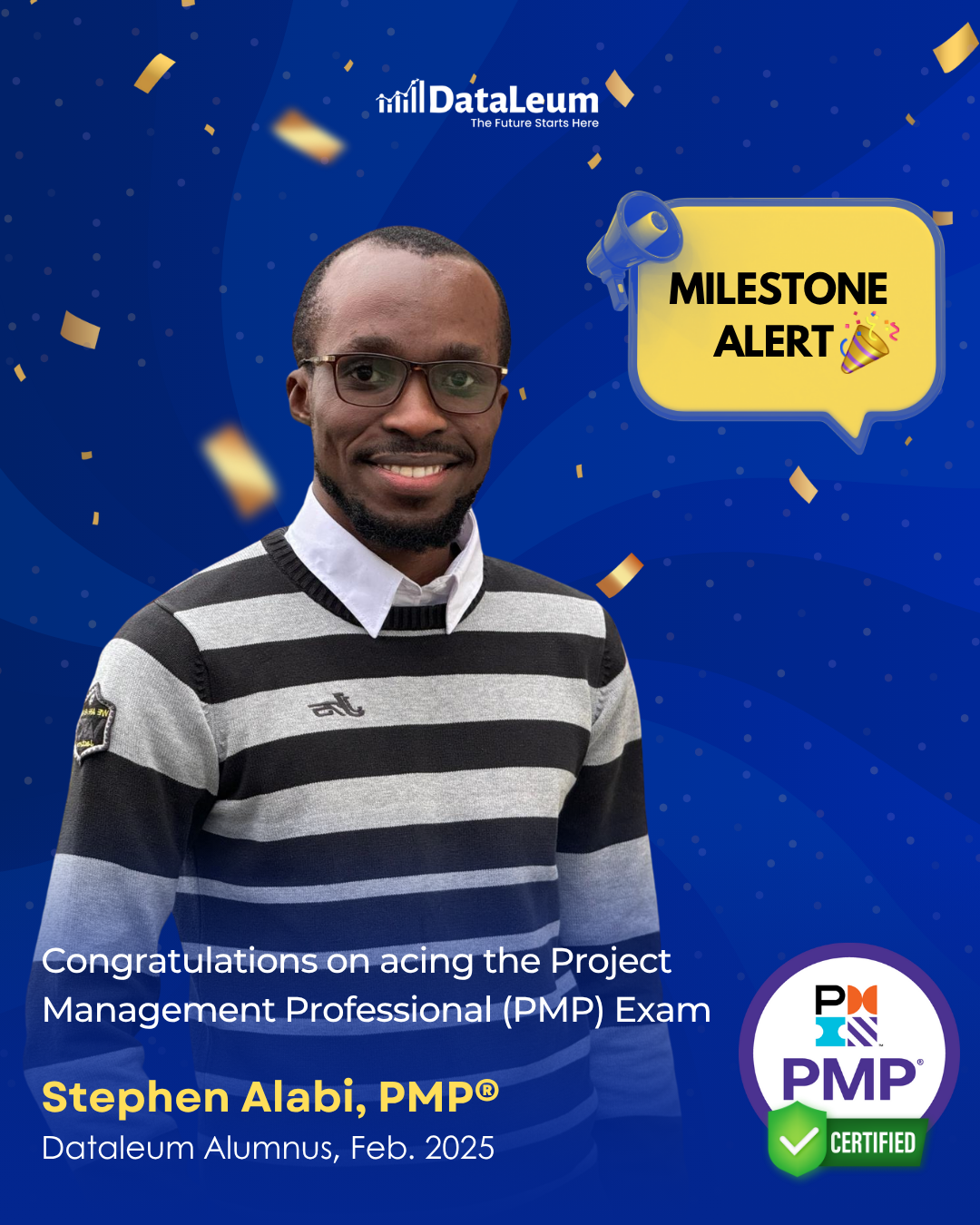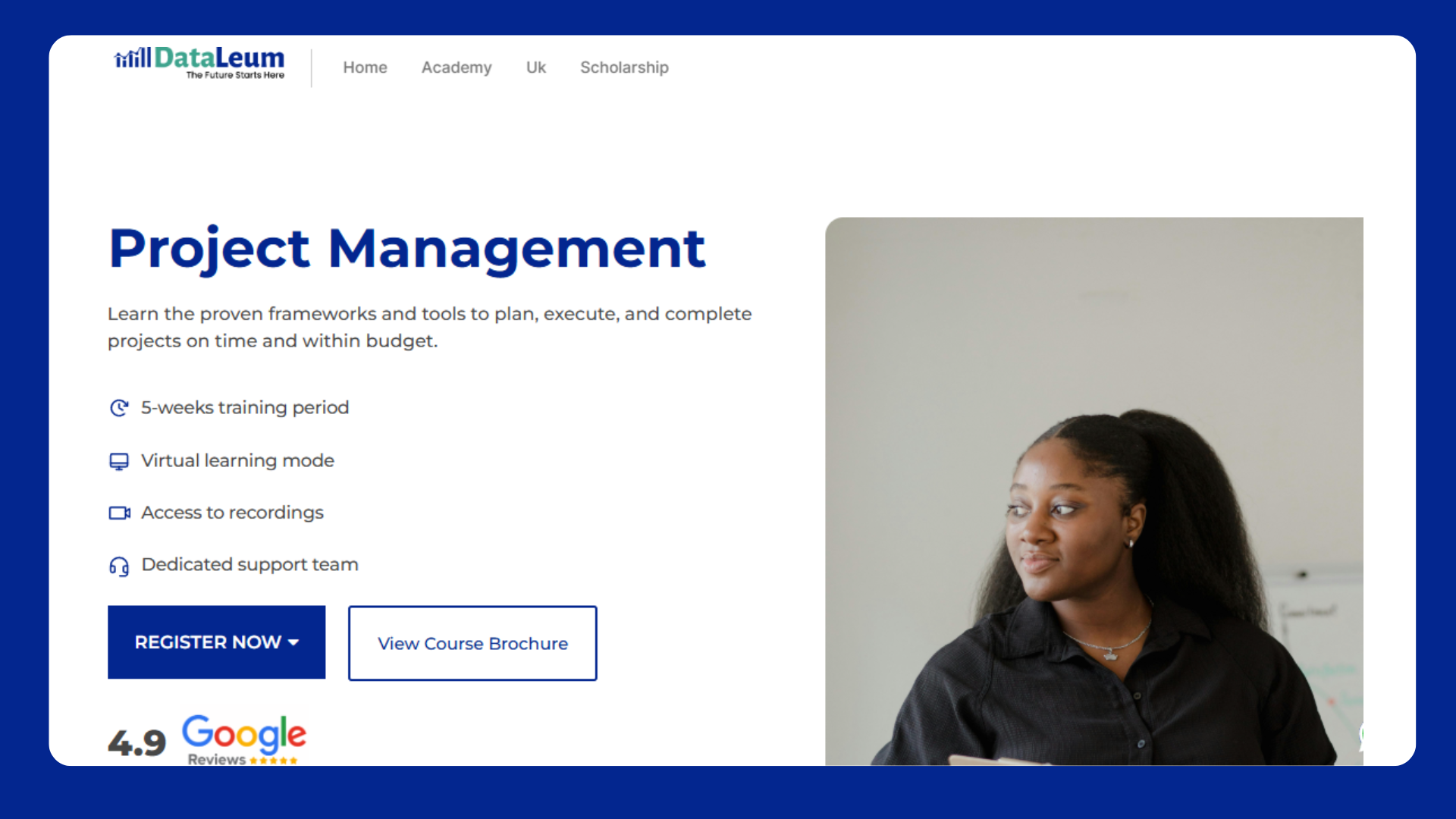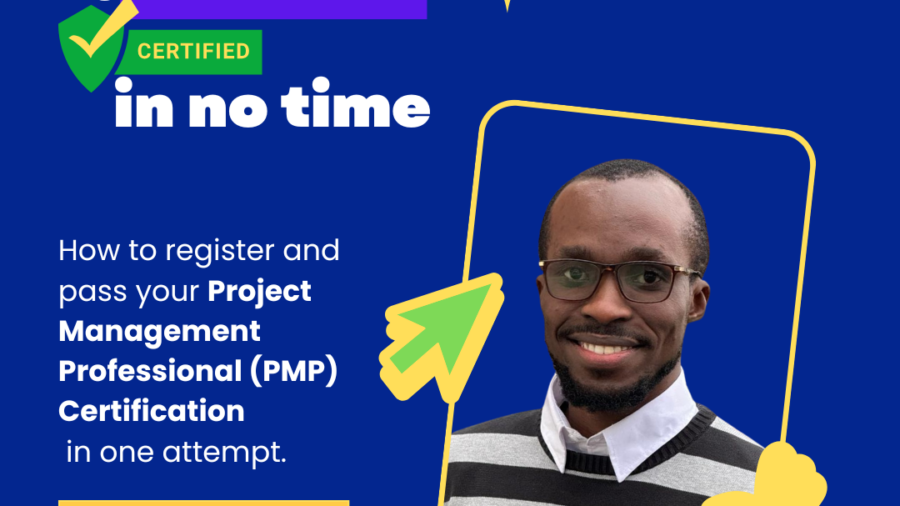We had the pleasure of sitting down with Stephen Alabi, a newly certified Project Management Professional (PMP)® who passed the exam on his first attempt despite working a full-time job and having limited prep time. Stephen shares his firsthand experience of balancing work with exam preparation, including the practical study strategies, mindset shifts, and personal sacrifices that helped him succeed.
In this candid walkthrough, Stephen breaks down the exact steps he took to prepare efficiently for the PMP exam. From selecting the right resources to navigating the self-proctored exam setup, his insights are tailored for professionals juggling work and certification goals. Whether you’re already managing projects or considering PMP certification, Stephen’s story offers real-world advice and motivation to get started and finish strong.

Interviewer: Stephen, earning the PMP certification is already a big deal, but doing it while working full-time sounds intense. What was that experience like for you?
Stephen: Earning the Project Management Professional (PMP)® certification is a significant milestone in any project manager’s career. But what happens when you’re short on time, working a full-time job, and still committed to getting certified?
That was exactly my situation, and I’m proud to say I passed the PMP exam on my first attempt.
My Study Approach and Resources
I knew from the beginning that I didn’t have the luxury of endless study hours, so I had to be strategic. I enrolled in the Dataleum PMP preparatory class, which provided a solid structure for my study.
Here’s what I used:
- PowerPoint slides from the Dataleum class: These were concise, focused, and covered the most critical knowledge areas in an easy-to-understand format.
- Practice exam questions: The mock questions we tackled during class gave me a true feel for the actual exam not just in difficulty, but in how the questions are framed.
- YouTube Video – “PMP Fast Track”: This was a game-changer. It shifted my thinking from studying for an exam to thinking like a project manager, which is key when answering PMP’s scenario-based questions.
- Exam simulation site: Although I didn’t use it extensively, the little practice I got helped reinforce timing and test-taking endurance.
The Time Crunch and Real-Life Challenges
Let’s be honest. Preparing for the PMP while working full-time is not easy. One of my biggest challenges was lack of time. I had to squeeze in study sessions during evenings, weekends, or any brief moments I could spare.
What made it more complicated was that I chose the self-proctored exam option. While this seemed convenient in theory, it came with strict exam environment requirements, from room setup to system checks. I had to carefully plan my test-taking environment and meet all the criteria, which added an extra layer of stress.
However, once everything was set up, I had the flexibility I needed to take the exam from home.
What Actually Worked for Me
Looking back, these were the strategies that truly made the difference in my preparation:
- Prior Experience: Having worked on various projects before helped me relate questions to real-world scenarios. That practical understanding gave me confidence in applying the concepts.
- Focused Slides: The PowerPoints from class were gold. Straightforward, exam-focused, and actionable.
- Question Practice: Going through sample questions helped me get used to PMI’s phrasing and logic.
- Mindset Shift: The PMP Fast Track video wasn’t just a study aid. It was a mental reset. I learned to think like a PMI-certified project manager.
I Read Most of The PMBOK
This official guide, published by PMI, was essential for building the kind of conceptual clarity I needed to pass the exam. I made sure I was using the latest 7th Edition.
I won’t lie the PMBOK® Guide can be dense and a bit dry. But it’s crucial. I’ve noticed that a lot of people who struggle to pass the PMP exam tend to skip it entirely, and that’s a big mistake.
What worked for me was breaking it down by knowledge areas. That approach gave me a solid foundation to build on.
My Advice to Future PMP Candidates
Here’s the hard truth: Reading the PMBOK® Guide alone won’t prepare you for the exam. Most questions are not based on definitions or lists. They are scenario-based and require you to apply project management principles in context.
Here’s what I suggest:
- Plan for self-proctoring if needed. Just be sure your environment meets PMI’s requirements in advance.
- Think like a PM, not a student. Understand the logic and intent behind PMI’s standards.
- Prioritize application over memorization. Know how to act in real-life project scenarios.
- Use targeted resources. Courses like Dataleum’s, well-crafted practice questions, and videos that help shift your mindset are more effective than passive reading.
Final Thoughts
The PMP exam is tough, and that’s exactly why it’s respected globally. But passing it doesn’t require perfection. It requires a focused plan, the right resources, and the ability to apply your knowledge in real-world scenarios.
If you’re juggling a tight schedule and wondering whether you can pull it off, you absolutely can.
I hope my experience helps guide and encourage you on your PMP journey. If you have questions or want to connect, feel free to reach out!
Want to begin your Tech Journey?
If you want be PMP Certified, join the next cohort of Dataleum’s Project Management training.

Dataleum is a technology training and consulting firm that develops, nurtures, and deploys globally functional tech talents.

